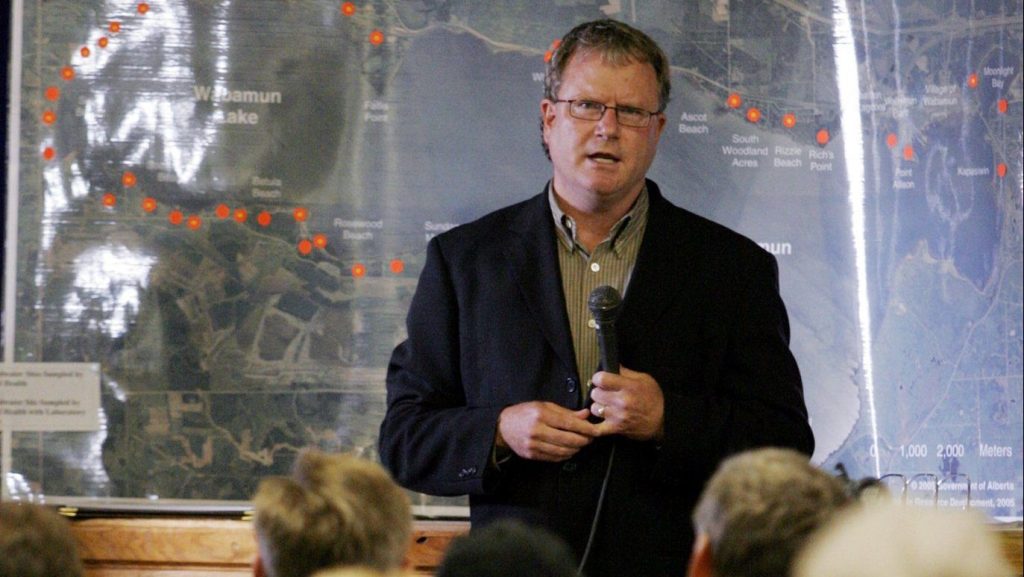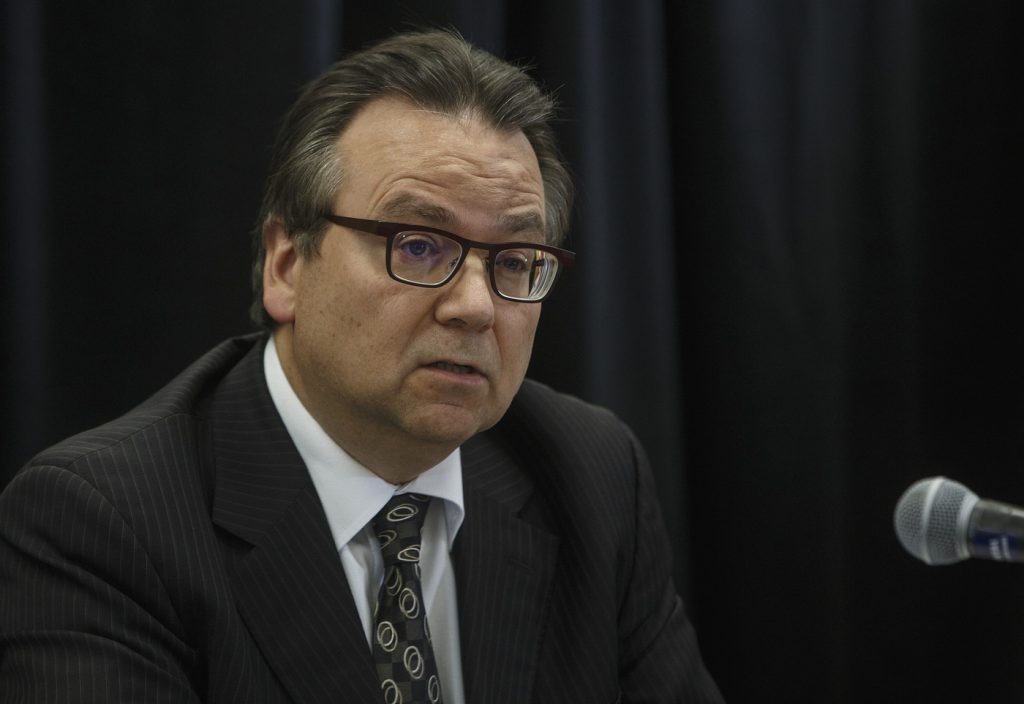Husky Energy announces layoffs, many in Calgary
Posted Oct 22, 2019 10:29 am.
Last Updated Oct 23, 2019 6:27 am.
This article is more than 5 years old.
CALGARY (660NEWS) – Husky Energy confirmed to 660 NEWS that it has laid off several people, although it didn’t confirm how many.
A report in BNN Bloomberg says hundreds of workers may be affected by the layoffs.
Most of the layoffs are believed to be in western Canada with a majority of them in Calgary.
The company, controlled by Hong Kong billionaire Li Ka-Shing, says the reductions are a result of steps taken to align the workforce with its capital plan and strategy.
Meantime, in the Legislative Assembly of Alberta, Irfan Sabir, Official Opposition Critic for Energy and New Democrat Party MLA for Calgary-McCall, said they warned the UCP government their corporate handout wouldn’t work and now Albertans in the energy sector are paying the price.
“The Albertans who came to work [Tuesday] at Husky Energy only to be handed a layoff notice know that [Alberta Premier] Jason Kenney’s corporate handout has failed them.
Husky made $233 million from the corporate handout, but not a single dollar has gone towards job creation,” he explained. “We know this pattern has repeated across all of the major energy firms in Alberta.”
Jason Nixon, House Leader and United Conservative Party MLA for Rimbey-Rocky Mountain House-Sundre, sympathizes with anybody who has lost their jobs in this province.
“The problem is, unfortunately, we have inherited a terrible situation from the NDP,” he argued. “Mr. speaker the NDP who have worked against the oil and gas industry their entire time in office have continued to do it inside opposition,” Nixon said.
Sabir questioned why Kenney didn’t ensure Husky would use the money they were given to create jobs.
“Husky made a quarter of a billion dollars from the premier’s handout, but it is cutting jobs, not creating them,” he said. “It’s been six months, there have been no jobs, in fact, the resource sector lost 13,000 jobs.”
Sonya Savage, Minister of Energy and UCP MLA for Calgary North West, spoke after Sabir saying this demonstrates there’s a critical need for pipelines and market access.
“And the NDP legacy on pipelines over four years was a dismal failure that saw zero kilometres of pipelines built,” she explained. “We’re in a job crisis because of failure by the NDP.”
Sabir asked if the premier has anything to offer Albertans, other than looking for scapegoats to blame for his failed corporate giveaway, and Nixon then responded by saying he rejects the entire premise of that question.
“We will not be lectured by the NDP. That member was part of an NDP government, this province oversaw the largest job loss in the history of this province, which brought us on track to $100 billion in debt,” Nixon countered.
In a statement to 660 NEWS, Husky said the layoffs are all part of a “way we approach our business, the way we make decisions and the way we work together to meet our goals.”
Here is the full statement from Kim Guttormson with Husky Energy:
Today we did have to say goodbye to some of our colleagues. Husky has been taking steps to better align the organization and workforce with our capital plan and strategy.
These changes put Husky in the best position to achieve its goals. This was about changing the way we approach our business, the way we make decisions and the way we work together to meet our goals.
We will not be sharing the number of jobs affected.
In a regulatory filing earlier this year, Husky indicated it had 5,157 permanent employees as of the end of 2018, little changed from the numbers at the end of 2016 and 2017.
Husky, which reports its third-quarter results on Thursday, announced at its investor day last spring that it would slash its average budget by $350 million per year to $3.15 billion over the next five years, accomplishing that in part by cutting costs.
It said it would still grow its production by 100,000 barrels per day by 2023.
The job cuts are reminiscent of a series of layoffs by Calgary oil and gas producers following an oil price crash in late 2014 that contributed to an estimated 110,000 direct and indirect jobs being lost through 2015 and 2016.
With files from The Canadian Press.








